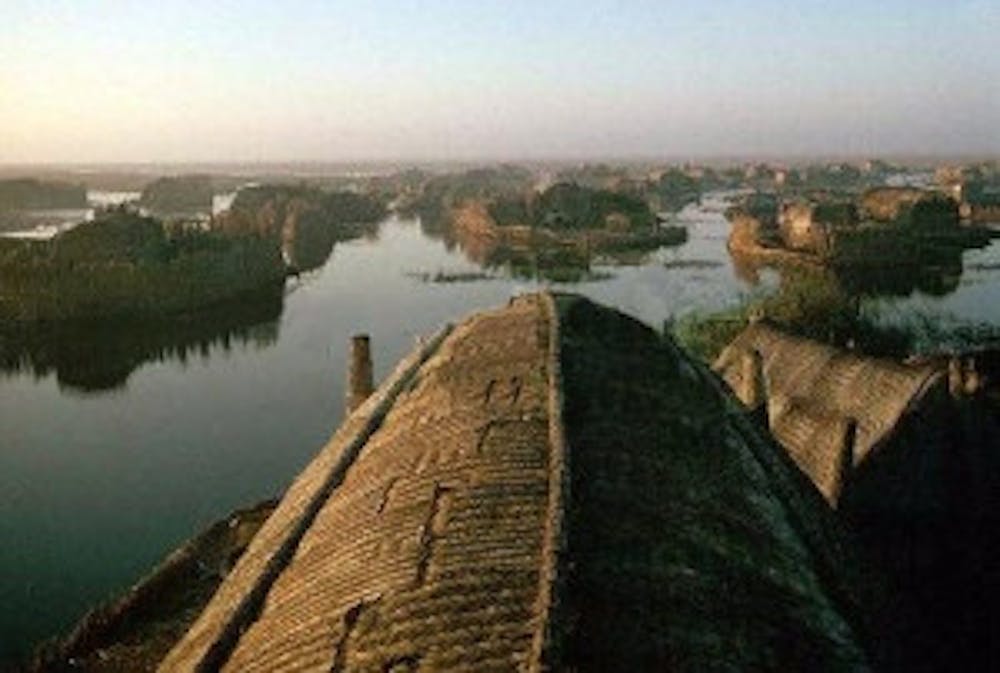
Delegates to the United Nations Climate Change Conference met in Warsaw, Poland last month to continue negotiations toward reaching an agreement on how to reduce greenhouse gas emissions and limit the global temperature increase. The conditions of a final global climate change agreement are expected to be ratified in 2015 at the Paris conference.
For starters, delegates should discuss how the world’s conflicts are leading to the loss of thousands of acres of unique habitats.
I recently had the opportunity to work with ABC News correspondent William Blakemore on his three-day lecture series at Miami that discussed how different fields can approach global warming, particularly psychology, journalism and film. For seven months I researched everything from Stanley Kubrick’s The Shining, the amount of coverage news organizations devote to climate change and a lot of science that I didn’t quite understand when I first started out.
Somewhere in the midst of all of this research, I came to the conclusion that there is more than just carbon dioxide emissions and deforestation causing climate change. The need to gain and maintain authority of a region or nation and the desire to earn a few dollars provoke individuals and entire nations to destroy land. Millions of people are displaced from their homes and millions of plants and animals are being killed by greed. Little is being done to stop it.
One individual on my environmental enemies list that everyone is most familiar with is Saddam Hussein. While we are all familiar with his ties to al-Qaeda and his suspected use of chemical weapons, most of us don’t know that he destroyed 7,700 square miles of marshlands and forced more than 250,000 people from their homes, according to the New York Times. From 1991 to 1997, he ordered the construction of dams and canals that drained the Kirmashiya Marsh and then ordered the area poisoned and burned. He salted the land, an act that will prevent new life for decades to come. The marsh, roughly the size of New Jersey and once an important stopover for migratory birds and a breeding habitat for Persian Gulf fisheries, was reduced to dust. All of this was just to retaliate against the Marsh Arabs for a Shiite uprising and destroy rebel hideouts.
In 2004, Iraqi engineers began breaking dams and levees to reflood the Kirmashiya Marsh. Now, the Marsh Arabs are slowing returning to their home but the water quality is poor and it will be many years before the vegetation and wildlife return to normal, if they ever do.
Another on my list is China. China invaded its northern neighbor, Tibet, in 1950 and has since officially claimed the country. Following the invasion, Chinese rulers quickly found out that Tibet was home to an environment that was very much still in a pristine and natural state. In 1949, according to the Washington Post, Tibet’s forests covered nearly 140,000 square miles, a patch of land the size of Montana. In 1995, over half of that had been cut down and transported for China to use as an export. Devastating erosion, landslides and soil degradation followed. More than 30 species in the area have since become endangered, including the indigenous snow leopard.
In 1996, world leaders realized that Tibet was facing an extreme environmental crisis. Australia hosted an international conference on the issue that led to a slow and enduring process of restoring the forests in Tibet.
The Tibetan deforestation and the draining of the Kirmashiya Marsh are just two examples of many environmental insensitivities.
During the time that I spent working with Blakemore, I learned that there is one thing he says to sum up every unfortunate or upsetting event. We would be discussing something and without warning he would exclaim, “HUMANS!”
At first I thought this seemed rather silly and I often laughed when I heard it, but the more I thought about the meaning behind the exclamation and the things I’ve both seen and read about, it made perfect sense. Everyone is looking out for themselves, wanting more money, more land, more power… And often when that happens, innocent people, places and things suffer.
If the delegates at these climate change conferences really want to make a difference, they should find a way to hold people accountable for the relentless annihilation of the world’s precious habitats.
Photo license: Creative Commons.
Story originally published in the December 2013 issue of Miami Quarterly Magazine.
